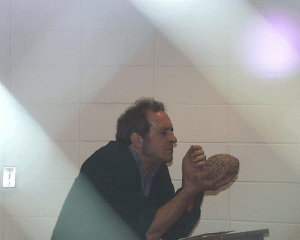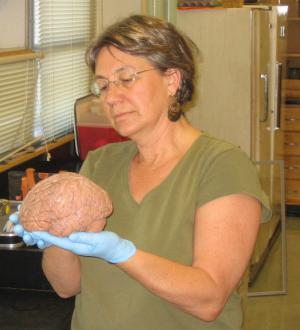Serendip is an independent site partnering with faculty at multiple colleges and universities around the world. Happy exploring!
Informed Guessing and Beyond
Towards Day 22 of Evolving Systems course
 |
 |
I. coursekeeping
* by Friday @ 6 send me a 3-pp. paper reflecting on the implications of thinking about the brain as the site of story-construction
* by Monday evening: post on-line your responses to today's discussion
* look esp. @ two important postings:
Paige's "digression" about writing style
Aimee's "confession" about uncertainty
* no papers or writing conferences due next week!
* Jane McAuliffe is visiting (part of) our section on Dec. 2nd!
II. today, guided by Paul, we're looking @ Illusions, ambiguous figures, and impossible figures: informed guessing and beyond
PGNotes22
III... and the English prof's contribution
"Meaning is context-bound....context is boundless;
there is no determining in advance what might count as relevant" (Jonathan Culler, Literary Theory).
- meaning is not pre-determined
- it comes into existence when a text is read & responded to
- focus on the transaction readers make with texts, ways they actualize them in their own experience
- meaning persistently revised as readers compare, collate their readings
- searching for common patterns, recognizing when the patterns break down
- how it works: an encounter between the heterogeneous personalities of readers and the indeterminacy/ ambiguity of language (=the space for making meaning).
- Reader-Response under review: art, game, or science?
-
Stranger in a Strange Land: Grokking in the Americas
My sabbatical in Latin America/learning Spanish:
The difficulties of reading culture.
The difficulties of speaking/hearing/interpreting a new language, differences in degree, not in kind:
there is always a gap of indeterminacy
in the transaction that is language
--a gap that's wonderfully demonstrated in the act of punning.
From a talk in the Emergence Group on Speech Recognition:
"a machine learns to wreck a nice beach"
Your offerings?
What do you get when you drop a piano down a mine shaft?
What do you get when you drop a piano onto a military base?(A-flat minor; A-flat major)
Why couldn't the pony talk? (It was a little hoarse.)
Why couldnt' the bicycle go any faster? (It was two-tired.)
What's going on here?
Why-and-how do those puns work?
What is the logic of their working?
...linguistic presumptions: puns demonstrate the inherent instability of the meanings of words, and so challenge the conventional understanding of language as a structure of relationships in which each word is identified by its difference from others. The distinction between words isn't at all that clear; the "category" that each occupies is very porous.
(In other words, they make linguists very nervous!)
"Linguists, arise! We have nothing but our *!"


